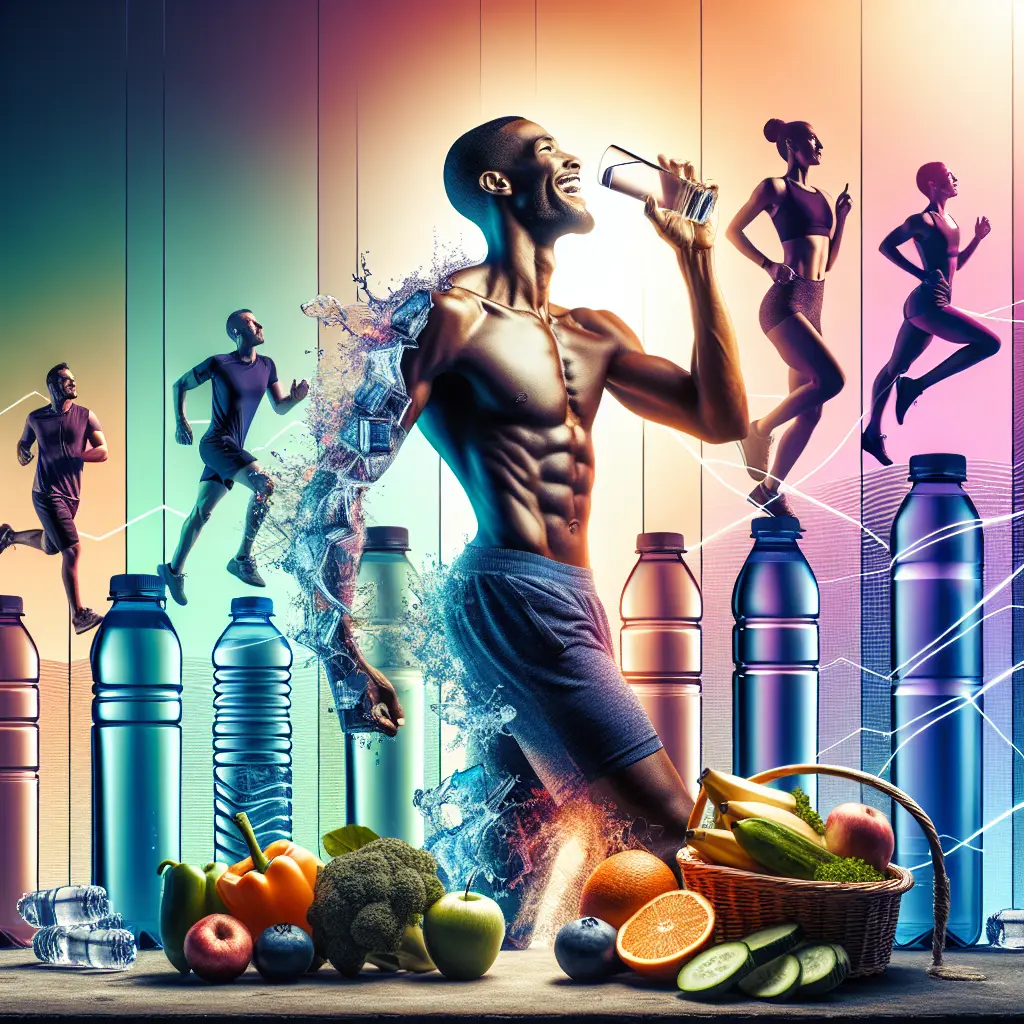
In the quest for peak physical performance and overall wellness, the role of hydration cannot be overstated. Whether you’re an athlete striving for your next personal best, a fitness enthusiast, or simply someone looking to maintain good health, understanding the science of hydration and implementing effective hydration strategies is crucial. Here, we will explore how optimal hydration enhances athletic performance and promotes wellness, supported by the latest insights and developments across various sectors.
The Science of Hydration
Hydration benefits extend beyond quenching thirst. Water is pivotal in regulating body temperature, lubricating joints, and facilitating the transport of nutrients to cells, which is vital for energy production and overall health (Mayo Clinic). For athletes, adequate water intake ensures that the cardiovascular system functions efficiently, muscle fatigue is delayed, and recovery is expedited.
Recent research underscores the importance of hydration for athletes and those engaged in regular physical activities. Hydration science reveals that even mild dehydration can impair cognitive function, mood, and physical performance (Journal of American College of Nutrition). Therefore, maintaining fluid intake isn't just about physical health but is also critical for mental sharpness and psychological well-being.
Hydration Tips and Techniques
To achieve optimal hydration, it’s not only about how much you drink but when and what you drink. Sports hydration isn’t merely gulping down water; it often involves electrolytes like sodium, potassium, and magnesium. These are crucial for rehydrating effectively because they help retain fluids and replace what is lost through sweat (American Council on Exercise).
Practical hydration tips include drinking fluids throughout the day, not just before or after exercise. Start your day with a glass of water and keep a bottle handy to sip from regularly. During intense training sessions or competitions, sports drinks can be beneficial due to their electrolyte content, which aids in rapid rehydration.
Hydration Strategies for Enhanced Athletic Performance
Implementing structured hydration techniques can markedly improve athletic performance. Tailoring fluid intake based on the duration and intensity of the activity as well as environmental conditions is key. For instance, athletes might require more electrolyte-rich fluids in hot climates to compensate for increased sweat losses.
Moreover, recent advancements in wearable technology allow athletes to monitor their hydration status in real-time, enabling more precise hydration strategies (IEEE Spectrum). This tech-driven approach helps in maintaining optimal hydration levels during prolonged sports activities or tournaments.
Hydration and Wellness: A Holistic View
Hydration influences more than just physical health; it's a cornerstone of holistic wellness. Regular and adequate water intake supports skin health, aids digestion, and can prevent ailments like kidney stones and urinary tract infections (National Kidney Foundation).
In the context of mental health and cognitive function, studies have shown that proper hydration can improve concentration, relieve headaches, and reduce the risk of long-term health issues such as cerebrovascular diseases (European Journal of Nutrition).
Insights from Other Fields
Interestingly, the principles of optimal hydration are metaphorically reflected in various sectors. For instance, China’s recent extensive economic plan might seem overwhelming in its breadth—much like how navigating through countless hydration advice can feel. Yet, the essence lies in extracting actionable insights that can be applied effectively (Reuters).
Similarly, the emergence of sophisticated AI models in healthcare demonstrates the importance of precision—akin to how precision in hydration can enhance wellness and performance (Nature). Just as AI models are tailored to specific tasks, individual hydration needs vary based on personal health metrics and lifestyle factors.
Addressing Misconceptions and Challenges
Despite its critical importance, hydration is often overlooked or overshadowed by more complex diet and fitness regimes. A common misconception is assuming all fluids hydrate equally. Beverages like coffee or alcohol can actually exacerbate dehydration and should be consumed moderately (Harvard Health Publishing).
Moreover, accessibility to clean drinking water remains a challenge in many parts of the world, impacting global health outcomes (WHO). Advocating for better water infrastructure is crucial in promoting hydration and health universally.
Concluding Thoughts
In summary, staying adequately hydrated is fundamental for enhancing physical performance and maintaining overall wellness. By incorporating strategic hydration practices—such as adjusting fluid intake based on activity levels and environmental factors—and leveraging advancements like electrolyte-enhanced drinks and hydration tracking technology, individuals can ensure they are meeting their hydration needs effectively.
As we continue to uncover more about hydration science, it becomes clear that something as simple as drinking water carries profound implications for our health and vitality. Let’s make every sip count towards building a healthier, more vibrant life.
Stay hydrated, Vanessa Doyle